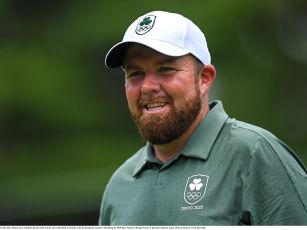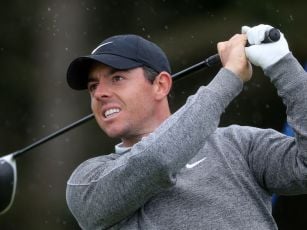Listen to the full interview above via the podcast
The World Anti Doping Agency is 15 years old, having been setup in 1999.
And from its inception Craig Reedie has been involved. The former Chairman of the British Olympic Association has been President of WADA since January 2014 and tonight he spoke to Off The Ball about the progress made by the organization and how it plans to continue the fight against doping in sport into the future.
"Sport in the main, and certainly elite sport in the main, is believed and trusted by spectators. I don't think anyone could have watched the recent World Cup without realizing that that was real and well organized. If you look back to the London Olympic Games, I think Olympic sports came out of London in as good a position as it has been for years and there has been very little doping activity in either of these two events," said Reedie.
Yet in soccer, FIFA's Chief Medical Officer Jiri Dvorak admitted there is an "urgent need to change detection strategies in football".
Also just over 2 per cent of doping controls in football are done via blood testing, despite the fact WADA recommends that figure should be 10 per cent.
"I discussed this with Jiri Dvorak when I was in Rio for the FIFA Congress. FIFA tests at its own events which would be the World Cup and the Confederations Cup. Almost all the other tests are done by national football associations. So FIFA are encouraging them to be more proactive in what they do," said Reedie, who feels that FIFA's big challenge is to get national FAs to pull their weight on the issue of doping.
"Secondly, in this World Cup, they pre-tested every player before they came to Rio and that's a good thing. They're also developing a blood passport programme. That one needs to be developed a little further than simply the players who went to Rio."

Jiri Dvorak EPA/LYNN BO BO
Tennis is another sport where the spectre of doping has been oft-discussed due to its lax testing regime in comparison to some other sports.
"Where I know [tennis] has been criticized is comments made by some of the very senior players, who actually say 'we want more'. I am pretty confident that the testing programme that they operate is effective for the sport and is run by people who take the challenge seriously," said Reedie.
Reedie believes the Union Cycliste Internationale (UCI) is taking doping seriously in cycling in comparison to the Lance Armstrong era.
There were no positive tests during last year's Tour, and this year has also been largely free of the stain of doping.
Reedie sees that as a good sign that cycling is becoming cleaner with the UCI's anti-doping unit made independent.
And of course there is the threat that cheats will try to remain one step ahead of the anti-doping bodies.
"There have been past evidence of a new EPO which is called CERA. We knew about that and the information came from the pharmaceutical industry. A test was developed. We didn't tell anybody and lo and behold some cyclists tested positive for CERA," he explained.
On the subject of bans, the recent case involving Jamaican sprinter Asafa Powell, who saw his doping ban reduced, has been debated and Reedie believes sanctions have to be proportionate, with life bans potentially subject to challenge in court.
Reedie also gave a bit of background into the International Olympic Committee's pledge a fund of $10 million into advanced anti-doping research with governments of the world invited to match it, while he also spoke about an upgrade of the Anti-Doping Administration & Management System (ADAMS) which is now 10 years old.
Download the brand new OffTheBall App in the Play Store & App Store right now! We've got you covered!
Subscribe to OffTheBall's YouTube channel for more videos, like us on Facebook or follow us on Twitter for the latest sporting news and content.








